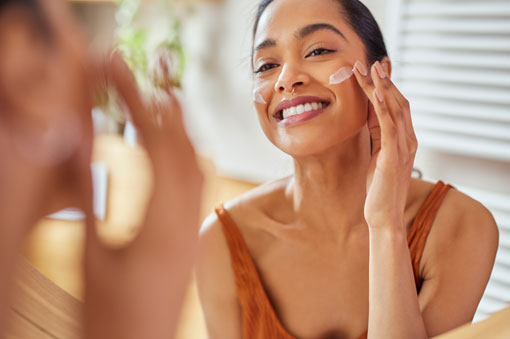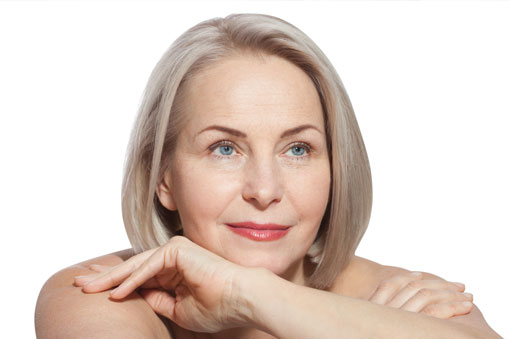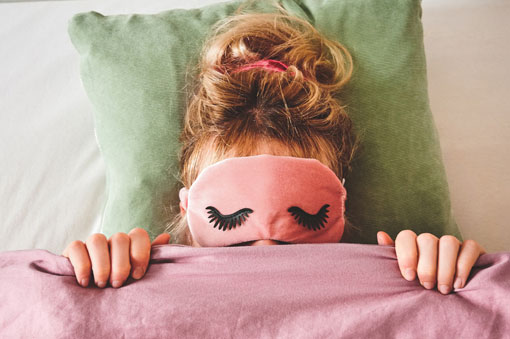In anticipation of a lovely, warm UK summer or for some of you, trips abroad, we have decided to stock two new ranges of sun protection creams.
Here at Butterflies Eyecare, you may not know that as well as James, our optician who started the business, I am his wife Michelle and a pharmacist.
Recently, I have come across news articles featuring young people who have discovered skin cancers, particularly melanomas. Often these were misdiagnosed and not investigated by dermatologists until it was too late and the cancer had spread. These features also quoted some pretty sobering statistics that really surprised me.
Melanoma is the fifth most common cancer in the UK. In 2017 there were almost 16,000 new cases of melanoma and 2,285 deaths from the disease. It is more common in women than men. It is a very rare cancer in children but shockingly it is the second most common cancer in people aged 15 to 34.

With this in mind, The British Association of Dermatology suggests that every month we inspect every part of our bodies for skin changes, unhealed sores, new moles or suspicious changes in existing moles. This includes in between the toes, the head, behind the ears and neck, under the breasts and the ano-genital area. A couple of tips are to use a mirror or to ask your partner to check your back or the hard to view areas.
It is vital to report anything unusual to your GP and to be referred to a dermatologist if you are still concerned. Remember that not all changes are melanoma, some skin cancers are non-melanoma and easily treated with chemotherapy cream for example.
I am passionate about the effects of sun damage, cancer and protecting all of us, especially those with sensitive skin and eyes, from this avoidable risk of cancer.
It is important to know ourselves and teach children how to look in a mirror when they apply their own sun cream before going to the beach. This trains us to include easy-to-miss areas that burn easily such as the nose, ears, back of the neck or the top of the feet. I am sure we can all recall ourselves or our family members being sunburnt in these areas. And how painful it is.
It really is so important to protect children from a young age. This is because there are two factors involved that increase the risk of melanoma;
- high levels of sun exposure before the age of 20
- being sunburnt during childhood (especially when it blisters)
We remember how messy and sticky some sun creams were to apply and they didn’t always smell very nice either. I used to burn really easily and be sensitive to some of the ingredients in sun creams, giving me immediate all over body itching and rashes requiring treatment with an anti-histamine.
With all the above in mind, we have sourced two sun cream ranges using our personal experience and my knowledge of pharmacy grade brands. The quality of a sun cream is very important as the sun’s rays can be extremely strong. Choosing a formulation that is pleasant to apply and use, encourages us to apply it more carefully and frequently. The quality of the sunscreens used and the other ingredients called excipients, provide maximum protection as they are evenly distributed throughout the cream and not patchy when applied.
I was particularly keen to source a facial sun cream to reduce daily exposure to ultraviolet rays. I struggle with finding a suitable one as I have skin that is prone to spots, breakouts and sun damage. Hormonal changes in women can cause permanent red or brown blotches and blemishes to appear on the face. Many face sun creams are far too greasy or shiny for me but need to be applied every day.
The two ranges we chose are the P20 range of chemical sunscreens and the Eucerin range of mineral sunscreens. It is important for us to offer different price points, application methods and both a chemical and mineral sunscreen to encourage as many swimmers as possible to protect their skin.
In 1979, Claus Riemann wanted to help a friend with sensitive skin keep protected during a stay in Africa. The solution he invented was P20 , a unique high performance sunscreen. It is a lightweight, transparent, fragrance-free and vegan formula that is fast-drying yet sweat and highly water resistant for up to 80 minutes. This makes it perfect for use on the face when sunscreen running into the eyes can exacerbate already sensitive eyes.
We first used Riemann P20 in our twenties as it was launched into pharmacies in the 1990s. It features Triple Protection Technology that exceeds the EU’s required level of UVA protection and SPF/UVB of 30 or 50.
It has been dermatologically tested and allergy certified to minimise the risk of developing allergies. Finally, this sun protection spray is ecologically improved to respect sea life such as coral reefs and the marine environment.
The application instructions must be followed exactly and include not applying any skin creams beforehand. Apply at least 40ml liberally, 30 minutes prior to sun exposure to allow the sunscreen to absorb into your skin. Leave it to dry completely before getting dressed. The sunscreen bonds with the skin and lasts up to 10 hours which is great for a busy day in the sun.
Riemann P20 range of sunscreens
The Eucerin range is superior to many other sun creams due to the quality of its sunscreens and cream base formula. As a dermatological pharmacy range suitable for atopic skin, they are not messy, perfumed and absorb really well.
They were developed using innovative Advanced Spectral Technology, which combines broad-band and photostable UVA/UVB filters for reliable UV protection with antioxidant licochalcone A for high-energy visible (HEVIS) light defence. Glycyrrhetinic acid provides additional DNA protection.
For skin prone to sun allergies, the sun creams contain alpha-glucosylrutin to help prevent sun-induced allergies such as prickly heat or polymorphic light eruption (PLE). They are clinically and dermatologically proven to be both highly effective and well tolerated by sensitive skin and eyes. Eye irritation caused by sun cream is common, especially when that familiar stinging occurs after it runs into your eyes or you accidentally rub you them.
May include inorganic ingredients: zinc oxide and titanium dioxide
Eucerin range of sunscreens
Related Articles
In anticipation of a lovely, warm UK summer or for some of you, trips abroad, we have decided to stock two new ranges of sun protection creams.
You may be surprised to know that although we are first and foremost an eye health company, we do stock products that can be used to ease menopausal symptoms.
There have been some advances in eye masks in terms of how they look, what they are made from, quality and what they can do. If you have had yours for a while, take a look at what’s new.
Allergies don’t just affect us in the summer, they can begin in the Spring as trees start to blossom and the first cut of growing lawns start.
Expert advice
“As a pharmacist I regularly offer advice on using eye drops, vitamins and hypo-allergenic skincare and cosmetics.
I see that keeping fit is important and am keen to promote the eye health and water safety benefits of prescription goggles and masks.”
Michelle Sutton (BPharm MRPharmS)
Founder of Butterflies Eyecare
























